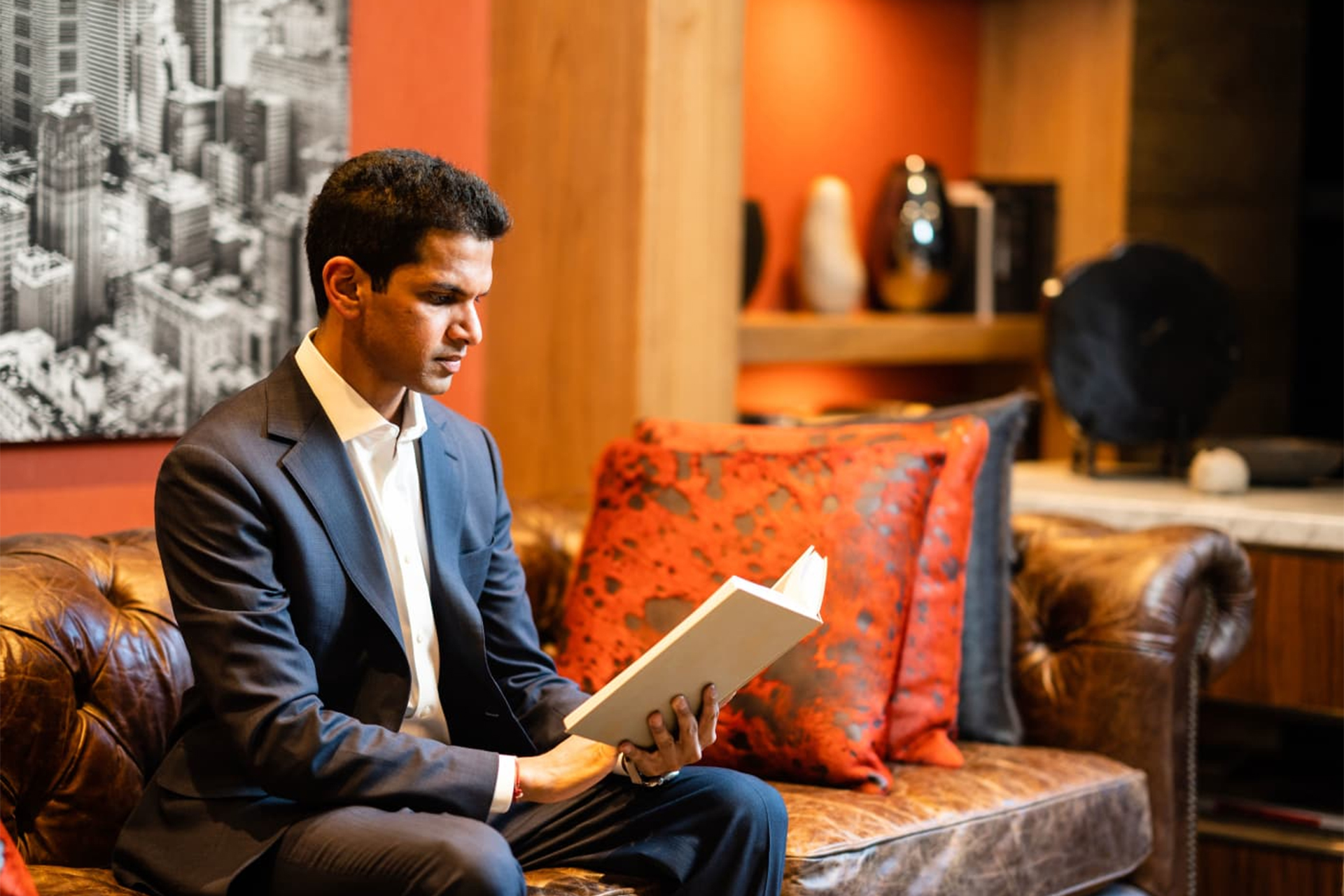Make-it has published a success story of Dr. Shan Patel, CEO and founder of a company that provides Prep Expert SAT & ACT preparation courses that have helped more than 60,000 students. improve their scores in university entrance exams.
Patel's company generated more than $25 million in revenue and enabled him to grow his business while he was in college, earning an MBA from Yale University, graduating from the University of Southern California School of Medicine, and later majoring in dermatology.
Patel attributes the secret of his success to 3 books that he says have helped him in his career and made him a strong and successful leader.
Below is a review of his three favorite books and some of the lessons he learned from each.
"Financial Freedom", Grant Sabatier (Al Jazeera)
The book "Financial Freedom" by Grant Sabatier, a book in the field of wealth building in which the author - who is the founder of Millennial Money and BankBonus.com - relied on his personal experience. He managed to raise more than a million dollars in just 5 years, by launching several side projects and saving and investing more than 80% of his income.
Sabatier's success is a success of the so-called "FIRE" movement, whose followers aim to achieve financial independence and early retirement.
Besides being a great introduction to investing, Patel says, "Financial Freedom also demonstrates an important principle, that time is more valuable than money."
The book summarizes for readers the true value of investing in “free time,” because “if you consistently work for every dollar you earn, you may live a stressful life.”
Dr. Patel's favorite quote from Financial Freedom is about reframing our thinking about income. We often think of spending money to get something, but when we spend money instead of investing it, we are actually taking away from ourselves two things: the time we spend making money , and the future freedom that we can have through it.
In order to save and invest more money, Sabatier advises in Financial Freedom to ask oneself a few questions before spending one's hard-earned money.
Among those questions, for example: How many hours of work are needed to buy this thing? Or: How much money can you earn if you invest that money instead of spending it? Patel says he used these techniques to change his spending, and adds, “This strategy worked very well for me."
"Rework", Jason Fried and David Heinemeyer Hanson (Al Jazeera)
Patel advises entrepreneurs - especially aspiring ones - to read the book "Rework" by Jason Fried and David Heinemeier Hanson.
Patel says he learned a lot about entrepreneurship while running his company, and "agrees with most of the points in the book".
The following is a summary of the most important lessons learned from it:
Meetings are a waste of time
Fried and Heinmeier Hanson see that meetings hinder productivity, and if a meeting must be held, they suggest that controls be placed for it, including that its time be limited, that the least number of people is invited to it, that it be to solve a specific problem, and it is confirmed when it is finished to solve.
The notion of “learning from your mistakes” is incorrect
Fried and Heinemeyer Hansson wonder what a person actually learns from their mistakes as an entrepreneur, because it often teaches the entrepreneur what not to do rather than what to do.
They say, “Success gives you real credit. When you succeed at something, you know why you succeeded, and you can do it again, and next time you might do better.
Time spent on your own is the key to building great values
If you want to be productive in what you do, Fried and Heinemeier Hanson advise you to spend some time alone, or spend time away from distractions such as the phone and people, as this helps success.
They say that "you can make a rule in the workplace that half of the day be set aside as one-on-one time. Decide that from 10 a.m. to 2 p.m. people can't talk to each other (except for lunch)".
"How to Quit Worrying and Start Living", Dale Carnegie (Al Jazeera)
“How to Quit Worrying and Start Living.” Dale Carnegie
“Thinking about the future will only make you anxious, and thinking about the past will also make you anxious, but thinking about the present moment helps you feel at peace,” Patel says.
He realizes that's easier said than done, but Dale Carnegie's How to Quit Worrying and Start Living offers strategies and tactics to help readers cope with the stresses of daily life, relieve anxiety, and reconcile Multiple responsibilities.
Patel says Carnegie has a 3-step strategy to help him overcome his fears:
Analyze the situation and determine the worst case scenario.
Mentally accept the worst case scenario.
Calmly devise strategies to prevent the worst case scenario from happening.
According to Carnegie, the aforementioned steps "get us out of the darkness in which anxiety clouds our vision," and help us focus on the solution rather than the problem.

